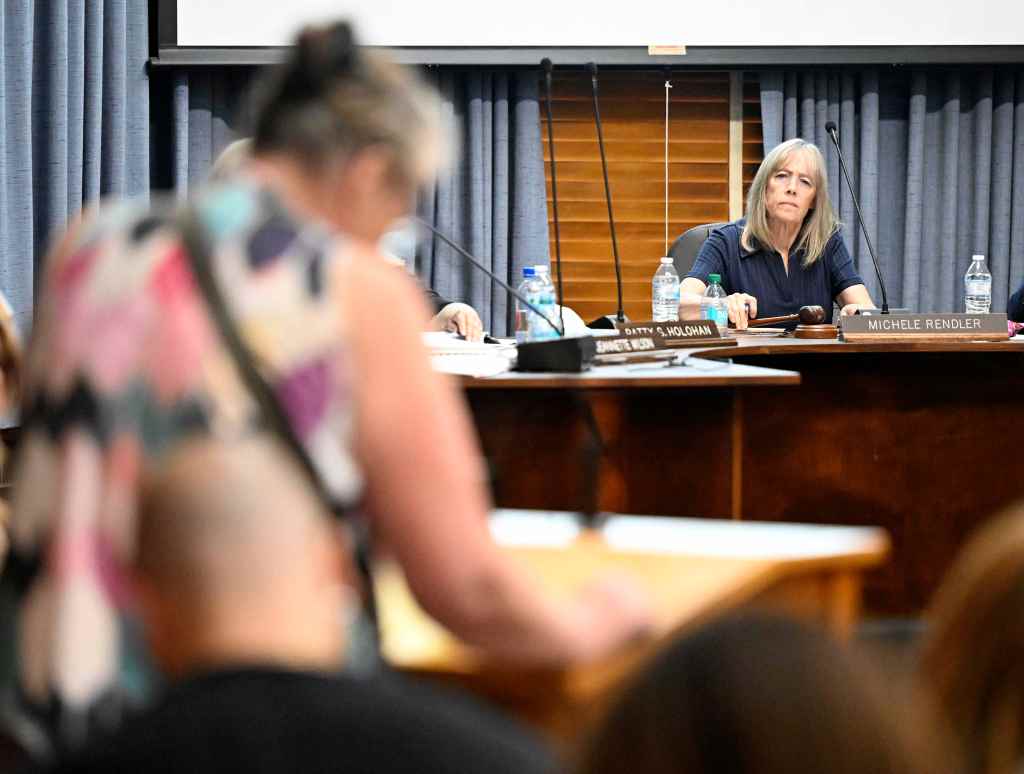More than 100 people packed the Redlands school board room while others gathered around a TV outside to watch a livestream as trustees discussed two resolutions centered on racism Tuesday night, June 10.
The first one addresses lessons about “white supremacy and systemic discrimination,” while the other expresses opposition to teachings that “promote division, collective guilt or racial stereotyping.”
RELATED: Redlands school board to discuss racial issues
The Redlands Unified School District board is taking a first look at the two proposals, but no vote is scheduled. Speakers addressed the board for more than three hours.
The first one, “Eradicating Racism,” resembles a resolution the board approved in 2020 and aims to address white supremacy in history.
The second one, a resolution proposed by board member Candy Olson, supports “anti-racism, equal opportunity and unity in education” and intends to avoid assigning “guilt” or creating “racial division” in lessons.
The resolution also states that the district “rejects race-based divisiveness” and won’t use curriculum or policies that “assign guilt, victimhood, or privilege based on race, nor will it promote ideologies that seek to divide students along racial lines.”
More than 20 speakers criticized the second resolution, saying it would sanitize history, which would lead to a repeat of history rather than acknowledging underlying issues that led to historical events. They also said it would put pressure on teachers to work within the bounds of a vague resolution.
“Society is not color blind and pretending it is is reckless,” district parent Peter Cain said.
RELATED: Redlands pastors pray for school board, LGBTQ+ students at vigil
Kimberly Hilliard said the second resolution “claims to promote unity but it undermines what the board has promised to do.”
Teaching about racism is not about injustice but about focusing on truth and growth, she said.
Hannah Edmondson, a teacher and parent, said that learning the stories of others is a reminder that “we can do hard things and we can make life better for ourselves and others at the same time.”
She said the second proposal was full of coded phrases that would censor history and said that telling kids to be kind is not enough.
“Anti-racism should support teachers, not silence them,” Edmondson said. “It should promote us to teach truthfully and honestly.”
Though the term critical race theory is not included, the resolution’s description of the teaching it opposes resembles that used by other conservative school boards such as the Temecula school board.
Half as many spoke in favor of the second resolution and criticized the first resolution for being unnecessary and creating division in the community.
Joshua Hall said the policy created a task force to deal with something that was not even an issue.
“It is focused through the lens of white supremacy, which hasn’t been a problem since the 1960s,” Hall said.
Dale Broome said that the resolution calls systemic racism a public health crisis, which he says is just not true.
“I have been doctor for 40 years and I’ve never seen someone come into the ER with systemic racism symptoms,” Broome said.
He said the resolution put one race against another and goes against the Constitution, which said all men are created equal.
“Emphasize equality not equity,” Broome said.
He also said the board could not guarantee an equal outcome, but it could guarantee equal opportunity.
Community member Greg Briton said that curriculum focused on systemic racism created an environment in which students are judged based on the color of their skin, which he said was “both morally wrong and practically wrong.”
“I wonder how many people who are opposing that have actually read all the words of Candy’s resolution,” Briton said.
In late 2022, after Temecula voters elected a conservative board majority, the Temecula Valley Unified School District board banned “critical race theory,” calling it “divisive” and a “racist ideology.” Some district officials and teachers have said the district never taught critical race theory.
Last month, an appellate court ruled that the Temecula school board’s policy was unconstitutional and the board agreed to stop enforcing it. It’s now asking a committee to rewrite the policy in hopes of avoiding further legal issues.
This is a developing story. Check back for updates.
Originally Published:








